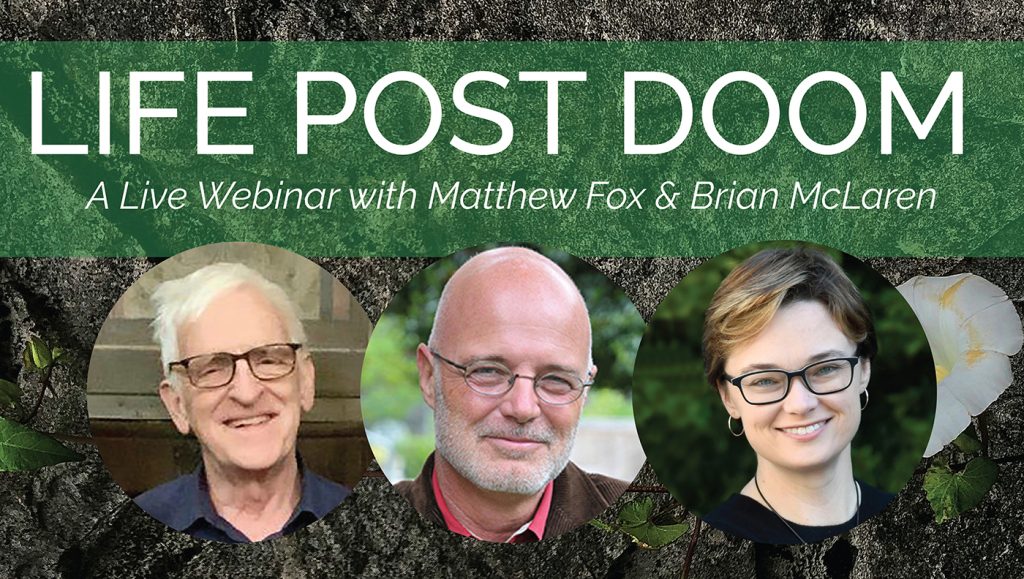Many of the congregations we work with at Convergence are anxious. They worry about attendance, money, facilities, whether they are making a difference in their communities, and so much more. A frequent worry focuses on the congregation growing older together. While we all hope to grow older (the alternative is not attractive), when a congregation grows older, members often assume the congregation is defective or failing somehow.
If this sounds familiar to you, you are not alone.
There are many reasons for this belief, including our society’s focus on youth and growth as the markers of a successful enterprise. These ideas are not rooted in our religious traditions but can be seen in Western consumerism and capitalism. However, the importance of wisdom can be found not only as Sophia in the Biblical text, but also in sacred texts and traditions across religious diversity.
What is wisdom? Wisdom can be defined from a psychological perspective as “an integration of knowledge, experience, and deep understanding, as well as a tolerance for the uncertainties of life (Psychology Today).” According to Beth Berinbaum at the Berkeley Well-Being Institute, “Wisdom is not just theoretical; it involves the practical application of knowledge and insights to navigate real-world challenges.” Philosophers such as Aristotle offer the idea that wisdom is knowing how to live well and putting that into action (Psychology Today). In Judeo-Christian traditions, wisdom is also a practice of submitting to God’s will and practicing the instructions of God, Sophia/Wisdom, and the elders, similar to an apprenticeship in the wisest ways to live. (HebraicThought.org). Sister Joan Chittister suggests that wisdom is “the ability to see the world as God sees it.” From this perspective, wisdom can mean acknowledging that we are all connected and using that insight to avoid and repair harm to self and others (Brian McLaren).
The pursuit of this kind of deep wisdom seems much more spiritually fruitful than worrying about our age. What if we focused less on fears of aging as a congregation and more on becoming wise together?
We can look for ideas on cultivating wisdom in an aging congregation in many spiritual traditions. Here we can draw inspiration from programs known as Wisdom Schools, as led by Cynthia Borgeault. These gatherings focus participants on internal learning and transformation, using collective prayer and meditation, instruction and silence, and other practices to surface and nurture wisdom in those gathered. Wisdom Schools are designed to change individual consciousness in such a way that it changes our collective presence in the world.
While Wisdom Schools are not exclusively for older adults, Borgeault has developed Ten Practical Guidelines for Conscious Aging, which suggest paying attention to opportunities for learning and growth in the changes that come with age. She also suggests focusing on inner being, or what she calls “being-vitality” rather than buying into the various consumerist and individualist schemes to reverse aging. Bourgeault says: “Honesty, openness, and gentle acceptance (a.k.a., “surrender”) create spiritual suppleness, the true mark of being-vitality.” You can read all of her guidelines here: Ten Practical Guidelines for Conscious Aging — Cynthia Bourgeault
At least one Episcopal congregation we know has taken these guidelines as a basis for a season of lectio divina, examining what they hear from Spirit in the text. Another congregation is hosting retreats on the Soul of Aging, based on the work of Dr. Parker Palmer and the Center for Courage and Renewal. A related model, Wisdom Circles, suggests that small group circles dedicated to holding space for wisdom can foster “meeting heart to heart, learning from each other’s life esperiences and honoring the values that sustain our lives… deep truth-telling, for practicing a way of relating to each other that can become the norm… recognizing our own unique talents and abilities.”
One excellent framework for nurturing wisdom in older adults can be found in the book, From Age-ing to Sage-ing, by rabbi Zalman Schachter-Shalomi and Ronald S. Miller. The insights shared in the book launched an organization, Sage-ing International, which hosts a training program for Sage-ing leaders, continuing education events, and many other resources. Rabbi Zalman Schachter-Shalomi lists among his 10 essentials for Spiritual Eldering Work: “To acquire the skills for inner work… To really listen to one’s own inner voices… To begin to do life repair, in health and practical matters, in relationships between the generations, and doing one’s own forgiveness work… To do the philosophical homework, pondering the meaning and purpose of life… To serve as an Elder to others, on behalf of family, community, and the Earth.” Congregations have used this resource to develop their own programs cultivating a sage mentality among elders.
We can apply any or all of these wisdom models in our churches when we take on the inner work of moving toward elder wisdom. Once accessed, this wisdom core can equip us to repair ourselves, our churches, and the world. Your congregation’s focus could shift from anxiety about aging in the church to a celebration of the wisdom within and among you.
Are you ready to move your congregation toward greater wisdom? Is your congregation or small group already doing exciting wisdom work? Reach out to me – I will be hosting a Zoom call later this month on cultivating wisdom in congregations, and I’d love to brainstorm and chat with you on that call or one-on-one at your convenience.
Want to hear more from Brian McLaren? Join this amazing live event with he and Matthew Fox on June 4, 2025 | 7:00–8:00 PM ET.



